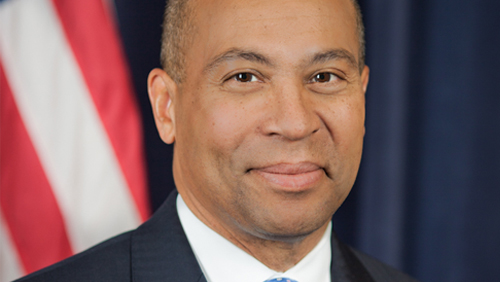 As if Massachusetts isn’t already knee deep in its casino licensing issues, state governor Deval Patrick stirred up a nest earlier this week by filing a lawsuit to block a proposed gaming facility on Martha’s Vineyard.
As if Massachusetts isn’t already knee deep in its casino licensing issues, state governor Deval Patrick stirred up a nest earlier this week by filing a lawsuit to block a proposed gaming facility on Martha’s Vineyard.
With the suit, Patrick is seeking action from the Supreme Judicial Court to uphold a 1983 land settlement between the state and the Wampanoag Tribe of Gay Head in which the former is contending that the latter forfeited its right to build a tribal casino at the Vineyard.
Patrick filed the lawsuit as a response to the Aquinnah Wampanoag tribe, who announced plans to build a temporary gambling parlor on the site of a yet-to-be-completed community center in Aquinnah. And this was after the tribe was given the green light to do so by the National Indian Gaming Commission, who deemed that the tribe had the rights to operate a gambling facility in the island without having to secure a license from the state.
That prompted Patrick to take action, saying that the NIGC’s opinion that the Indian Gaming Regulatory Act, which essentially allows gambling to happen on tribal lands, supersedes the deal the tribe and the Commonwealth agreed to in the 80’s in exchange for 400 acres of land on Gay Head.
The Wampanoag tribe has yet to comment on the lawsuit filed by the governor, but the prevailing thought is that the tribe can’t give away rights that it didn’t know it had until 1988 when the Indian Gaming Regulatory Act was signed. There’s a disconnect here that isn’t all too surprising, one that puts the light how strong-arming does have its ill effects when not executed in the proper manner.
We’ve seen it happen in New York and while its governor Andrew Cuomo managed to get deals done with Indian tribes there, Patrick’s move to stop the Aquinnah Wampanoag tribe from building a temporary parlor – temporary! – in Martha’s Vineyard is yet another example of his administration’s overly stringent and sometimes muscle-flexing tendencies when it comes to upholding its 2011 expanded gambling law.
Speaking of that law, it behooves us to think that Patrick, a staunch proponent of expanded gambling in the state, would hold negotiations with the Mashpee Wampanoag Indian tribe in its quest to build a resort casino in Taunton but block the Aquinnah Wampanoag tribe from building that aforementioned temporary parlor in the Vineyard, a pretty attractive tourist destination if there ever was one.
Maybe if he decides to uphold the very set of rules laid out on that 2011 expanded gambling law, governor Patrick will have a better avenue by which to discuss this issue with the Aquinnah Wampanoag instead of seeking to block them outwardly without any meaningful discourse between both sides.